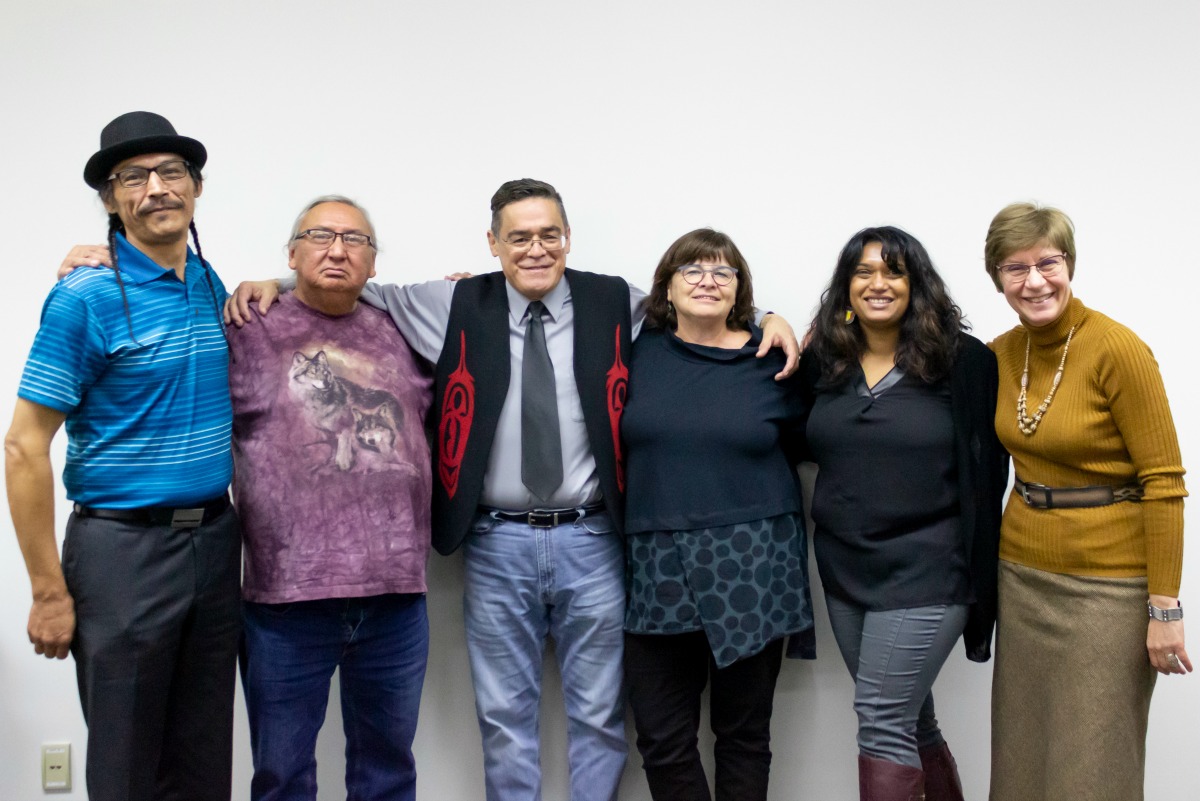Students from nine different schools across Canada are joining together in a virtual classroom to discuss the meaning of reconciliation—and to learn how to advocate for equity and justice.
The National Youth Dialogue project, based in the Centre for Global Citizenship Education and Research (CGCER) at the University of Alberta, will bring together approximately 700 Grade 9 students from coast to coast to practice a crucial aspect of citizenship they might not learn otherwise.
“This project emerged out of a conversation about the idea of citizenship and how youth learn that they are agents of change within society. That’s the idea of advocacy. How do you act to make positive change, how do you organize with other people?” said CGCER director Lynette Shultz, who is leading the project with colleague Anna Kirova.
“It seems like a topic teachers are interested in; certainly youth sense they have a role to play. To ground it, we chose one of the most pressing issues in Canada—the inequity for First Nations children. So that started us on the path of designing this project.”
Researching locally, thinking globally
The students will conduct research in their own communities on a series of topics related to Indigenous issues throughout the school year, then share what they’ve learned through video conferences and a web-based collaboration platform. Next spring, representatives from each school will convene at the U of A to produce a white paper based on their research. The work will be supported by a panel of experts, as well as mentors from the U of A’s Aboriginal Teacher Education Program and graduate students in Educational Policy Studies.
Shultz said embarking on a nationwide project related to reconciliation has required not just a great deal of technical know-how but a lot of forethought on how to carry out the work.
“At this moment in Canada, the ideas of advocacy, change, concepts of citizenship are being transformed by shifting relations with Indigenous people. So we have reflected long and hard about working in that space,” Shultz said. “It demands that we listen very carefully because the pattern has been, not only as teachers do we tell youth what to do, but as non-Indigenous people, we try to decide how the world should work. It’s been a worthwhile process, a demanding process, to think that through.”
Dale Saddleback, a PhD student in Secondary Education, helped develop the curriculum for the project and will help students understand protocols for engaging with participating Elders.
“We live in a world of written traditions, but the history of our people stems from an oral tradition and we need to honour that way,” Saddleback said. “So it’s really important for the young ones to understand where our knowledge base comes from and why we don’t go to libraries to find that out, where the Elder becomes the archive and the library.”
“Love is justice in action”
The launch event for the project on October 18 saw students and teachers from eight participating schools in Nova Scotia, Ontario, Saskatchewan, Alberta and BC gather via video conference to meet with project organizers based at the U of A. Each class acknowledged the treaty covering the territory on which their school is located by way of introduction.
“Acknowledging the treaties of the territories you are on is an important step. Ten years ago you would never have heard that,” said expert panellist Lewis Cardinal, a noted human rights advocate who is also a PhD candidate in the IPE program.
“As much as we love our country Canada, we know that there are issues and problems. It is a country that gives hope to other countries and other peoples. But living in Canada, we see the imperfections and we see that there is still work to do.”
Cardinal also drew on his own experience to initiate students in the values that underpin advocacy.
“What I’ve learned is that justice is love in action. It is something we do to demonstrate to each other we are sincere in ensuring that each individual, each group of people, each region of Canada has access to the processes and systems that provide equity in how we address social issues,” he said.
“Equity is respect in motion. We demonstrate it to each other by listening, by sharing, by creating the opportunities for people to achieve their purpose in life.”
Feature image: Organizers of the National Youth Dialogue, from left: Dale Saddleback, PhD student in Secondary Education; Elder Jerry Saddleback; Lewis Cardinal, PhD candidate in Educational Policy Studies; Lynette Shultz, director of the Centre for Global Citizenship Education and Research (CGCER); Thashika Pillay, CGCER program director; Elementary Education professor Anna Kirova. (Photo: Laura Sou)
